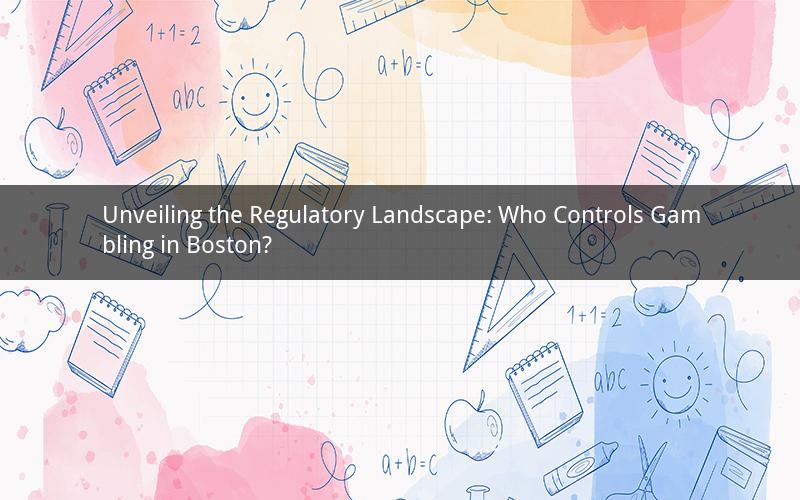
In the bustling city of Boston, gambling has long been a topic of interest and debate. With a rich history and a diverse population, it is essential to understand who controls gambling in Boston. This article delves into the regulatory framework, key stakeholders, and the impact of gambling on the city. Let's explore the intricacies of Boston's gambling control.
1. The Legal Framework of Gambling in Boston
Gambling in Boston is governed by both state and local laws. The primary state law that regulates gambling in Massachusetts is the "Gaming Act of 2011." This legislation allows for the operation of three resort casinos and one slots parlor in the state. The Massachusetts Gaming Commission (MGC) is responsible for overseeing the licensing, regulation, and enforcement of these gambling establishments.
2. The Massachusetts Gaming Commission
The MGC is a five-member commission that regulates the gambling industry in Massachusetts. Its mission is to ensure the integrity of the gaming industry, protect the interests of the public, and maximize the benefits of gambling to the state. The MGC reviews and issues licenses for casino and slots parlor operations, investigates complaints, and monitors compliance with the Gaming Act.
3. Local Control and Impact
While the MGC is the primary regulatory body for gambling in Boston, local governments also play a role in the decision-making process. This includes approving or rejecting casino development proposals, imposing taxes, and regulating gambling-related activities within their jurisdictions. The impact of gambling on local communities is a significant concern for many Bostonians.
4. Key Stakeholders
Several key stakeholders are involved in the control and regulation of gambling in Boston. These include:
- Massachusetts Gaming Commission (MGC): As mentioned earlier, the MGC is the primary regulatory body for gambling in the state.
- City of Boston: The city government plays a crucial role in approving or rejecting casino development proposals and regulating gambling-related activities within its boundaries.
- Gambling Operators: These are the entities that apply for and operate casinos and slots parlors in Boston.
- Local Communities: Residents and community leaders have a vested interest in the impact of gambling on their neighborhoods.
- Gambling Industry Advocates: These individuals and groups support the expansion of gambling in Boston and believe it can bring economic benefits to the city.
5. Impact of Gambling in Boston
The impact of gambling in Boston is multifaceted, with both positive and negative aspects:
- Economic Benefits: Casinos and slots parlors generate significant revenue for the state and local governments, which can be used for public services, infrastructure improvements, and economic development.
- Job Creation: The gambling industry provides numerous employment opportunities for residents, including jobs in hospitality, gaming, and related fields.
- Negative Impact on Communities: Some communities have expressed concerns about increased crime, gambling addiction, and other social issues associated with gambling.
- Tax Revenue: The gambling industry contributes to the state's tax revenue, which can be used to fund public services and reduce taxes for residents.
Frequently Asked Questions (FAQs)
Q1: Who regulates gambling in Boston?
A1: The Massachusetts Gaming Commission (MGC) is responsible for regulating gambling in Boston, overseeing the licensing, regulation, and enforcement of casinos and slots parlors.
Q2: How does the City of Boston influence gambling regulations?
A2: The City of Boston plays a crucial role in the decision-making process by approving or rejecting casino development proposals and regulating gambling-related activities within its boundaries.
Q3: What are the main stakeholders involved in Boston's gambling control?
A3: The main stakeholders include the Massachusetts Gaming Commission, the City of Boston, gambling operators, local communities, and gambling industry advocates.
Q4: What are the economic benefits of gambling in Boston?
A4: The economic benefits include job creation, increased tax revenue, and potential funding for public services and infrastructure improvements.
Q5: Are there negative impacts of gambling in Boston?
A5: Yes, some concerns include increased crime, gambling addiction, and other social issues that can affect local communities.